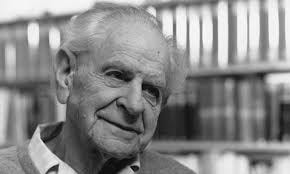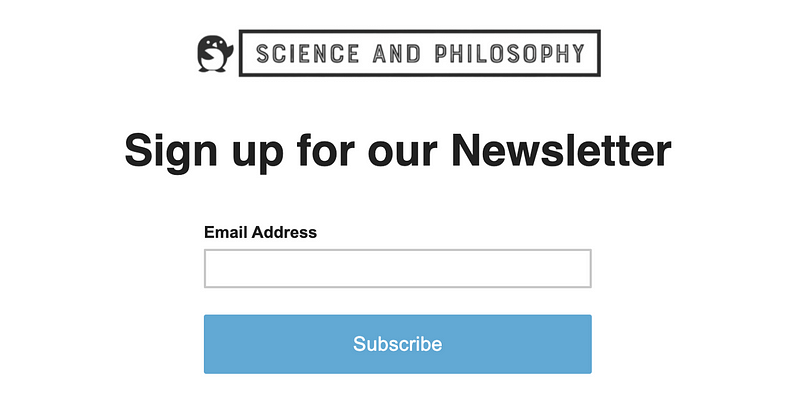The Critical Role of Science in Modern Society: A Philosophical Inquiry
Written on
Chapter 1: Understanding the Current Landscape
In today's world, many people echo the sentiment that society is on a downward spiral. We are witnessing a clash between mask supporters and opponents, climate advocates and skeptics, as well as the ongoing debate between flat-Earthers and round-Earthers. The omnipresence of nuclear weapons adds to our anxiety, as we find ourselves on the precipice of unprecedented technological warfare.
At the core of these discussions lies the essence of science. Every piece of information, every technological advancement, and every step we take—whether forward or backward—stems from the contributions of often unnamed scientists.
The tension between society and science is not new. It dates back to the early 17th century when Galileo faced skepticism for asserting that the Sun is at the center of our Solar System. Long before Galileo, Socrates, while not a scientist per se, questioned the prevailing beliefs of his time, earning himself a death sentence for his trouble.
Fast forward over two millennia, and the struggle continues. People remain resistant to directives from "experts" clad in lab coats. There is a perennial curiosity surrounding the nature of science: What is it, how does it reach conclusions, and why should we place our trust in scientists?
What Is Science?
The brief response to this inquiry is that there is no consensus on the matter. A more elaborate answer reveals that science is designed to be a systematic approach to acquiring knowledge. However, even the definition of what constitutes scientific knowledge is up for debate. After all, science can make mistakes.
While volumes can be devoted to the question of "What Is Science?", I will focus on one prevalent misconception: inductivism. This is a methodology where theories emerge from observed facts. In this approach, a hypothetical scientist collects data to formulate theories about underlying phenomena. It seems a straightforward method for advancing scientific understanding.
However, this approach faced critique shortly after its introduction in 1620 by Francis Bacon. David Hume notably pointed out the "Problem of Induction," arguing that induction cannot guarantee absolute knowledge since an infinite number of observations would be required to validate any phenomenon definitively.
Bertrand Russell illustrated this through a humorous analogy about an "Inductivist Turkey." Each morning, the turkey is fed at 9 AM, leading it to conclude that this routine will always continue. Tragically, the turkey's assumptions are shattered on Christmas Eve when it meets its fate.
While some philosophers of science still advocate for refined forms of inductivism, many have shifted to Karl Popper's falsificationism in the mid-20th century. This philosophy asserts that science can only disprove statements rather than confirm their truth. For instance, if I propose that "All swans are white" and later observe a black swan, I have made a scientific advancement by falsifying my previous hypothesis. Falsificationism also helps categorize "pseudo-sciences," which make claims too vague to be disproven.

Despite the various philosophies of science, it is crucial to recognize that we have yet to reach a consensus on what science is, what it aims to achieve, or how it operates—these are distinctly different inquiries. This leads us to the subsequent question: Why Should We Trust Scientists?
Why Should We Trust Scientists?
The answer is complex. While we should maintain a healthy skepticism, we also benefit from trusting scientific findings. History illustrates that scientists are not infallible, and their track record is rife with errors. The belief that the Earth is flat, the heart as the center of thought, and the notion that blood does not circulate are just a few examples of widely accepted misconceptions that have been debunked over time.
These earlier beliefs were logical given the evidence available at their time. However, they raise a crucial question: How can we differentiate between current scientific understanding that may also be flawed? How do we know whether we lack sufficient data or the appropriate methodologies? It is likely that much of what we currently accept as scientific truth will eventually be revised.
This leads us back to the fundamental question: Why should we trust scientists? A straightforward answer is that, generally speaking, we gain from doing so. The correlation between advancements in physics and chemistry and a nation's human development and economic success is more substantial than with other proposed metrics.
When it comes to trust in science, various factors come into play, including gender, political affiliation, and the source of scientific information. Research indicates that men are more likely to claim a deep understanding of science, despite discrepancies in educational attainment. Additionally, political beliefs significantly influence perceptions of scientific objectivity, with Republicans expressing more skepticism than Democrats. Public opinion also suggests that healthcare professionals, like doctors and nurses, are viewed as more credible sources of scientific advice compared to government officials.

The extent to which science can be shaped by the biases of researchers or governmental expectations is subject to scrutiny. If foundational theories that guide scientific observations are flawed, the entire framework built upon them may crumble.
I personally advocate for a perspective akin to 'natural selection' in science. This viewpoint, while not excluding other philosophies, suggests that science is an evolving endeavor that adapts until it reaches a limit or becomes untenable, at which point it shifts direction. While no universal theory of science is accepted by all scientists, this is not problematic as long as science continues to serve society effectively.
Summary
In summary, science remains a philosophical enigma when it comes to its precise definition, though many experts have their preferred theories. In our modern world, simply "knowing the science" is insufficient. We, as scientists, writers, educators, and philosophers, must delve into the nature of our knowledge. If absolute understanding remains elusive, it becomes imperative to recognize the challenges associated with acquiring scientific knowledge.
Today, we inhabit a globally connected society where everyone can voice their opinions. It is essential to argue scientific principles not just through the lens of "X scientist said Y," but also by evaluating the relative strengths and weaknesses of various scientific approaches based on historical and philosophical contexts. This necessity compels scientists to broaden their perspectives, defending not only their findings but also the discipline of science itself through the study of its history and philosophy.

The first video, "The History of the World According to 'Ancient Aliens'," explores various historical claims and their implications on our understanding of the past.
The second video, "The History of the World: Every Year," offers a captivating timeline of significant events throughout history, illustrating the evolution of human civilization.